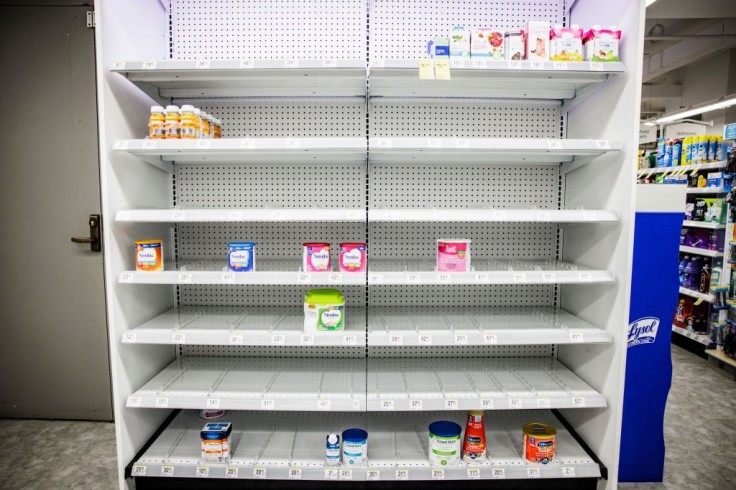
Abbott Nutrition has restarted its baby formula milk production at its Sturgis, Michigan plant, a development that hopes to ease the nationwide formula milk shortage in the coming weeks.
The company resumed its production operation in Michigan after the U.S. Food and Drug Authority (FDA) gave the company the green light. Reuters reports that the company had complied with "initial requirements" of the May 16 consent agreement decree. The Abbott plant in Sturgis was forced to close in February after FDA detected bacterial contamination in its formula products. The closure intensified the baby formula shortage in the country, prompting the White House to import formula from abroad in the recent weeks.
Abbott Plant in Sturgis, Michigan
The largest baby formula manufacturer in the U.S. said that it would resume the production of EleCare, a specialty formula for children who struggle to digest, and other metabolic and specialty formulas. The milk company aims to release Elecare products on June 20 and is also working to meet guidelines to resume Similac production and different Abbott milk formulas.
Abbott said they understand the urgent need for formula, and its priority is getting high-quality and safe formula for families across the country. The company also assured that it would ramp production quickly while meeting all requirements set by the FDA.
The lack of formula has sent at least four babies to a children's hospital in South Carolina. A hospital in Atlanta is also treating children due to the shortage.
According to CBS News, the company started a recall in February after reports of bacterial infections in children who consumed milk from the plant. When FDA inspected the Sturgis facility, the agency found "shocking" findings such as cracks in vital equipment, lack of adequate hand washing, and evidence of bacterial contamination. The FDA's inspection found bacteria in environmental testing but not in the product samples.
Last month, the FDA and Abbott entered into a consent decree agreement that gave the agency oversight of Abbott's actions to address problems at the plant.
Abbott controlled 40 percent of the infant formula market, including Similac. The U.S. had also relied on local production for infant milk formula. However, the White House has recently resorted to importing formula milk from other countries such as Germany, the U.K., and Australia to ease the formula shortage.
Read Also: Operation Fly Formula: United Airlines Donates Flights to Ship Baby Formula from the UK to the US
Worsening formula milk shortage
The opening of the Abbott plan hopes to ease the lack of infant formula milk supply in the country. As per retail tracking data, the baby formula shortage continued to worsen last week despite the White House's action to ease the shortage.
As per Datasembly, national out-of-stock rates increased to 74 percent on May 28.
Bloomberg says that states most hit have out-of-stock rates at 90 percent or greater, including Arizona, Mississippi, California, Nevada, Tennessee, Rhode Island, Louisiana, Florida, and Washington. The state hardest hit was Georgia, at 94 percent from 74 percent the week before.
Metro areas with 90 percent or greater out-of-stock rates are Atlanta, Phoenix, San Antonio, Oahu, Houston, Memphis, Jacksonville, Orlando, Los Angeles, San Francisco, Seattle, Miami, and New Orleans/Mobile. Meanwhile, the shortage hit Sacramento the hardest at 95 percent.
Related Article: Operation Fly Formula: Plane carrying Baby Formula Milk Arrives in the US, Abbott CEO Apologizes